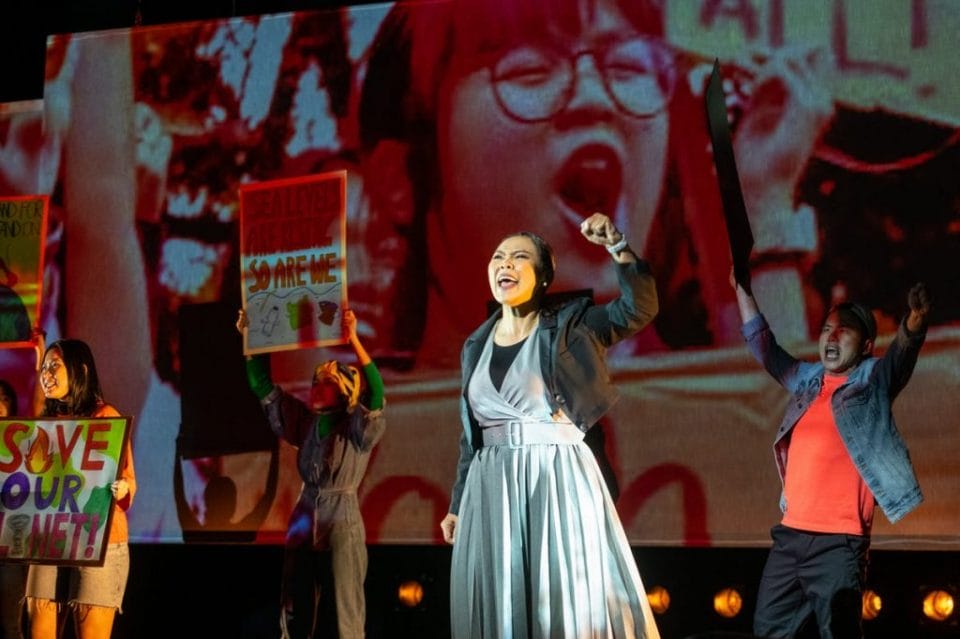
Image of “The Year of No Return” courtesy of Tuckys.
Climate change has been a hot button issue lately. There have been plenty of movements enacted to address it — no more straws; bring your own bags; eco-friendly everything — but activists and experts alike have decried this trend, saying that it puts far too much of a moral license on individuals and absolving big corporations of their responsibility.
It’s a tension explored in ‘The Year of No Return”, a new play now showing as part of the Singapore International Festival of Arts. The play doesn’t pontificate about excessive plastic use and forgoing air-conditioning — it attempts to confront the deeper complexities behind climate change.
“For the ordinary Singaporean, a lot of focus is being paid to ‘individual action’ — reduce, reuse, recycle, and so on,” says Melissa Lim, the dramaturg of “The Year of No Return” and the general manager of The Necessary Stage, the theatre company behind the show. “Sure, these are important actions to take, and I would argue they are necessary in any case because we should be socially responsible citizens.”
“But these are hardly going to have an impact on climate change and in fact, play into the books of companies and states that want the general population to think this is an issue of personal responsibility, not one of corporate and state responsibility.”
Here, Lim talks more about how the play was produced across numerous countries during the pandemic — and what needs to be done to address the “climate emergency”.
—
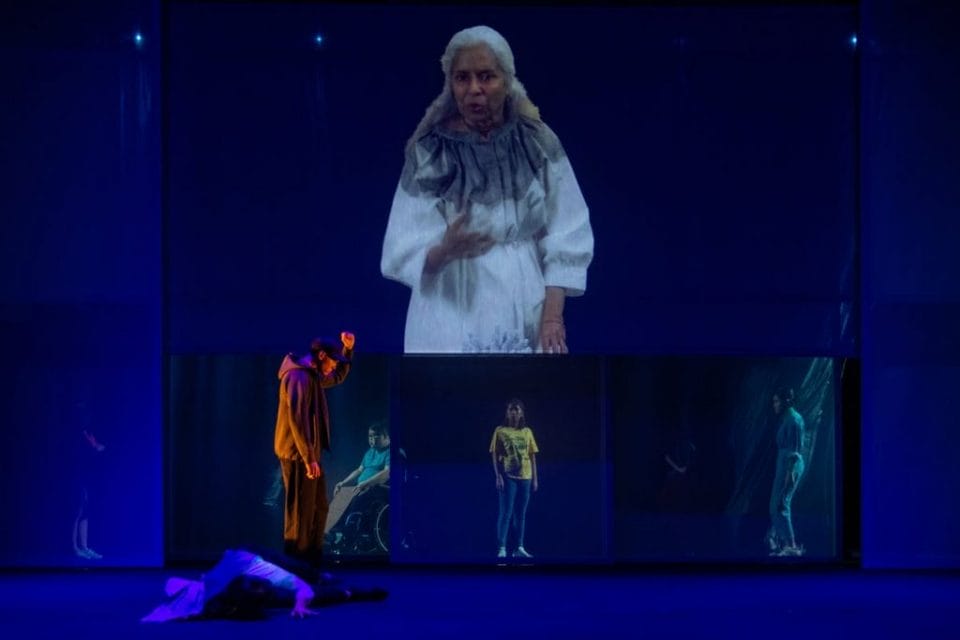
Image of “The Year of No Return” courtesy of Tuckys.
How did you conceptualise “The Year of No Return”?
“The Year of No Return” has been in gestation since 2019 and throughout this period, it has gone through several rewrites and reconceptualisation — not only in response to the pandemic, but also because of the alarming acceleration of climate breakdown and consequently the urgency for bold climate action.
When we first decided to focus on the issue of climate change, it was largely because of numerous reports we’d come across that said unless the world begins drawing down drastically on carbon emissions, the planet is headed towards a point of no return.
As we researched more into the issue, evidence of the Sixth Mass Extinction become incontrovertible. And yet, we found that responses to climate change varied wildly from denialists to activists. “The Year of No Return” is our attempt to understand these differences, and also to question if humanity is to be doomed by relentless capitalism.
—
Some of the tension in “The Year of No Return” comes from the different responses that people have to climate change, where did you get the inspiration for this from? What’s the cast’s take on climate change — are they largely aligned in their views or is there also that same tension from the show?
There is plenty of literature available on climate change and climate justice, so those helped immensely as part of the overall research behind the piece. But what also really helped and inspired us was meeting different people working in the field—from climate scientists to corporate figures — as well as watching the worldwide phenomenon of people coming together to speak up against corporate greed, fossil fuel exploitation and the subsequent degradation of our planet.
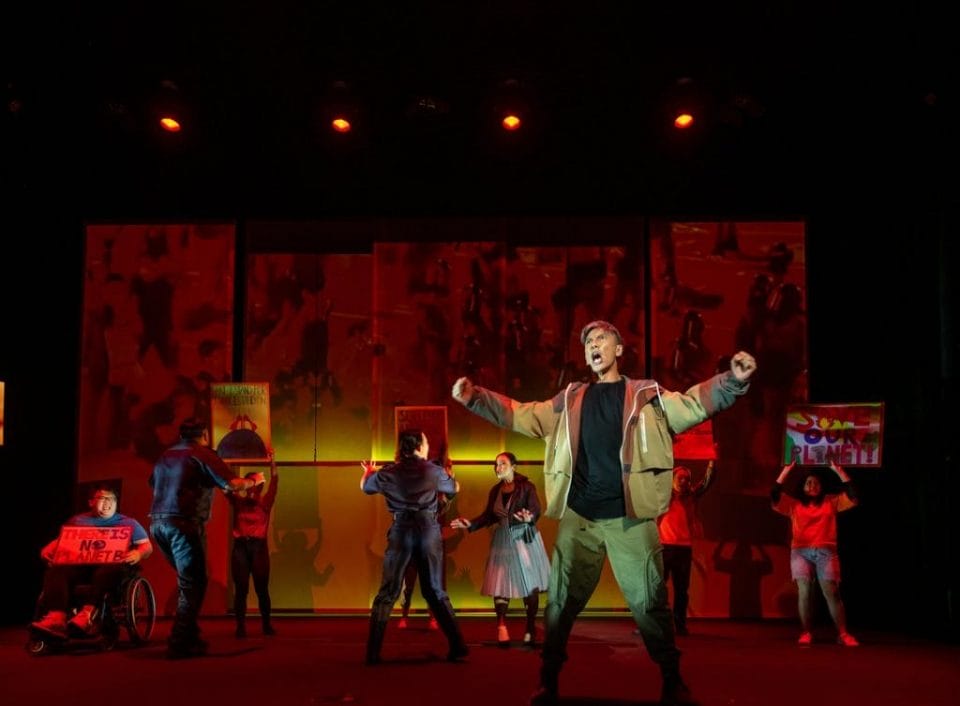
Image of “The Year of No Return” courtesy of Tuckys.
At the same time, we cannot deny the complexity of the climate crisis, and how different people and entities are responding to it in different ways. How is it that corporations managed to pull the wool over the public’s eyes over decades on the destruction that the fossil fuel industry has perpetrated and continues to cause to our environment? Why is it that the profit motive has defined the progression of history — to our detriment and eventual demise? How is it possible that some of us have chosen to remain unmoved by the extent of the crisis, whilst others have literally put their lives on the line to fight for climate justice?
These differences are so interesting to delve into, and we wanted to present all these different voices in the mix — without offering a singular narrative or direction. We want the audience to feel compelled to make that decision themselves.
I think it’s fair to say that the members of the team all have different stances to climate change when they first started working on the show. But as the collaboration progressed, they all gained a new understanding of the crisis, and have become more conscious of environmental and climate issues.
—
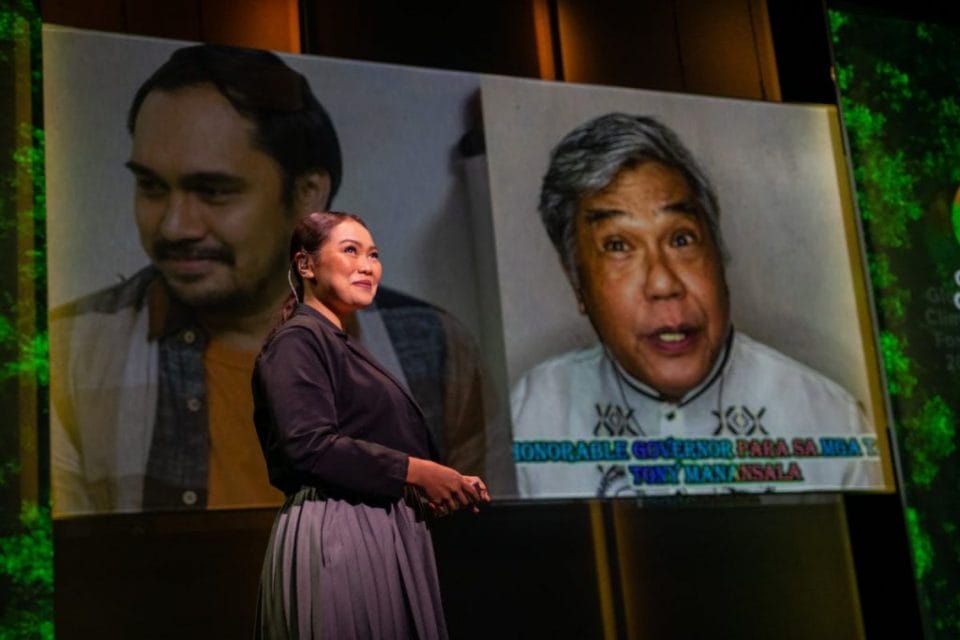
Image of “The Year of No Return” courtesy of Tuckys.
How did you conceptualise the show in the midst of a pandemic?
We had wanted to work on another intercultural, interdisciplinary collaboration with some of our favourite artist-collaborators from the Asian region for some time. So when SIFA approached us to commission The Necessary Stage (TNS) for the 2020 festival, we pitched the idea of “The Year of No Return” to them.
We had the opportunity to work with the entire team traveling to Singapore for two earlier phases, and these phases were crucial in solidifying the dynamics of the team as well as the overarching focus of “The Year of No Return”. Unfortunately due to the COVID-19 pandemic, the festival postponed the premiere of the work to 2021 — which then also meant we had more time to process the work, albeit with restrictions in travel and safe distancing measures in place. So in many ways, the pandemic forced us to create and develop an international intercultural collaboration in brand new ways. With artists situated in four different countries, we had to find ways to collaborate remotely — via video calls, Zoom reads, online chats, etc.
—
In the last few years, the issue of climate change has gotten a lot of global attention. Do you think this has translated into awareness — and subsequently, action — in Singapore?
There is undoubtedly more attention now being paid to the issue of climate change. But I think it would be erroneous to assume that awareness translate to action — or specifically to action that will address the root causes. In Singapore, a large portion of governmental actions focus on adaptation rather than mitigation strategies, and these will not be enough to change the cause of climate destruction. Meanwhile, for the ordinary Singaporean, a lot of focus is being paid to “individual action” — reduce, reuse, recycle, and so on. Sure, these are important actions to take, and I would argue they are necessary in any case because we should be socially responsible citizens.
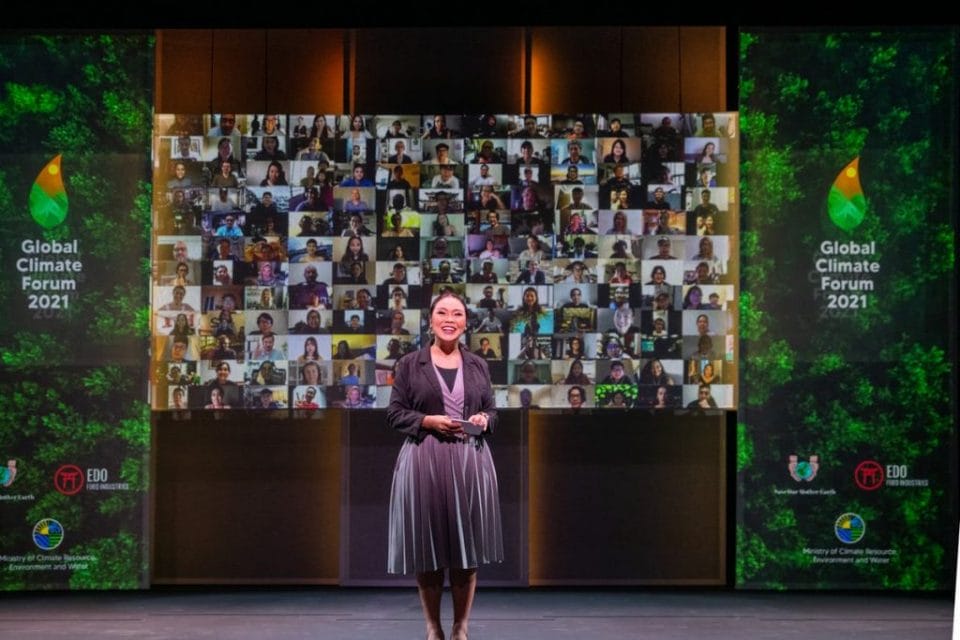
Image of “The Year of No Return” courtesy of Tuckys.
But these are hardly going to have an impact on climate change, and in fact, play into the books of companies and states that want the general population to think this is an issue of personal responsibility, not one of corporate and state responsibility.
Rather than commit to these piecemeal shifts in personal consumption patterns, what we need is for people to come together and demand for collective action from corporations and governments to reduce carbon emissions — not in the future, but now — and to seek systemic changes in the way the world is currently structured, where power is concentrated in the hands on a small privileged elite.
What do you hope “The Year of No Return” can add to the conversation surrounding climate change?
The climate emergency is something that affects all of us, regardless of race, nationality, gender, sexual preference, and so on. So there will be a lot of resonance in “The Year of No Return” with audience members’ lives, and hopefully because of that, through the production, we will manage to remind people that they cannot lapse into despair now. They have the agency to act, and to hope — even in the face of extreme oppression.
If I could quote Rebecca Solnit here: “[Hope] is not the belief that everything was, is, or will be fine. The evidence is all around us of tremendous suffering and tremendous destruction. The hope I’m interested in is about broad perspectives with specific possibilities, ones that invite or demand that we act.” So act.
This story about “The Year of No Return” first appeared on L’officiel Singapore.








